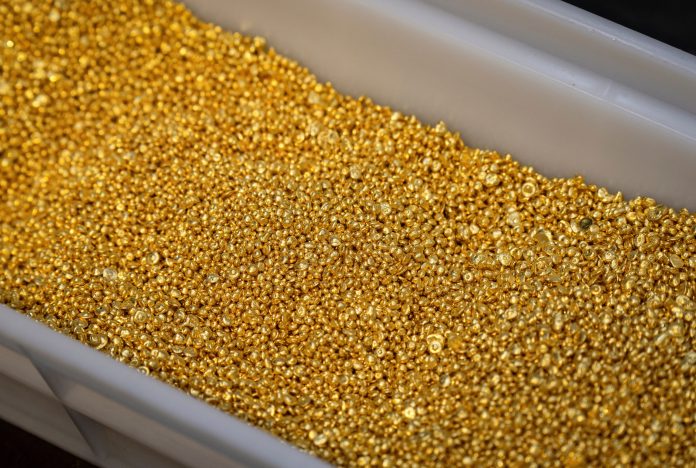Commodity prices were mixed over the Christmas week, looking for direction amid political developments, while markets were dominated by the perception of high risk ahead of President-elect Donald Trump taking office and his promised increase in tariffs on China.
US 10-year bond futures hit their highest since May, rising to 4.26 per cent, after the Federal Reserve signalled that next year’s rate-cutting cycle may be slower than expected. The US dollar index held near a near two-year high, rising to 108.3 last week and ending trading at 108.0.
Analysts believe geopolitical tensions and central bank gold purchases will continue after Trump returns to the presidency in January, and political uncertainty will persist.
Gold fell 0.3 per cent an ounce amid rising bonds and markets’ focus on the impact of Trump’s policies and the Fed’s future roadmap. Silver and palladium were down 0.6 per cent and 0.9 per cent respectively, while platinum rose 0.6 per cent an ounce last week.
Meanwhile, copper rose 0.8% as the Chinese government announced it would reduce import tariffs on processed copper and aluminium from January 1.
China’s finance minister said the decision was to encourage imports of high-grade products and expand domestic demand as the China-Maldives Free Trade Agreement (FTA) comes into effect on the first day of the new year.
On Monday, El Salvador’s legislature lifted a seven-year ban on metal mining. President Nayib Bukele backed lifting the ban to boost economic growth, while environmental groups criticised.
Chile’s environmental body SMA filed four charges against Anglo American-controlled Los Bronces copper mine for failing to comply with environmental permits, resulting in a $17.2 million fine.
Chile’s Cadelco has applied to extend the life of its Gabriela Mistral copper mine by more than 25 years with an investment of $800 million. The mine is scheduled to extend its life from 2028 to 2055 and the use of local groundwater will be phased out by 2035.
Aluminium rose 0.8% and zinc rose 1.3%, while lead fell 1.4% and nickel fell 1% over the past week.
Energy sector prices
As for the energy sector, Brent crude ended the week up 1%, rising to a weekly record high thanks to a larger-than-expected decline in US crude inventories. Greece and Israel concluded an agreement to promote regional energy stability and innovative energy projects in the Eastern Mediterranean and the EU.
India’s Bharat Petroleum announced plans to invest $11 billion in a new refinery and petrochemical project in Andhra Pradesh state in the south of the country to meet growing fuel demand.
Russia’s Gazprom chief Alexei Miller said natural gas production will increase by 61 billion cubic metres to 416 billion cubic metres this year. The Venture Bayou tanker of US-based Venture Global LNG has set sail from its export facility in Louisiana to deliver its first cargo to Germany.
Grain prices
China has also launched a 10-year action plan to boost grain consumption and develop the sector through higher standards, research and international co-operation to enhance food security.
According to the plan, by 2035, China’s grain awareness and consumption should match the country’s economic and social development by 2035.
Soybeans rose 1.1 per cent after Brazilian Supreme Court Justice Flavio Dino suspended a law that would have eliminated tax breaks for companies following an agreement not to buy soybeans from deforested areas of the Amazon rainforest. The law would have taken effect on January 1 in the western state of Mato Grosso, the country’s largest soybean producer.
On the Chicago Mercantile Exchange, the price of a bushel of corn rose 1.7 per cent and rice fell 2.2 per cent.
The price of sugar fell 0.8 per cent due to lower sugarcane yields in India following last year’s drought and this year’s heavy rains, which could bring the country’s sugar production below consumption for the first time in eight years.
The price of a tonne of cocoa ended the week down 15.31% from record highs on concerns about the possible impact of the Harmattan wind on Ivory Coast’s cocoa crop, which could dry out the soil and damage the fruit.
